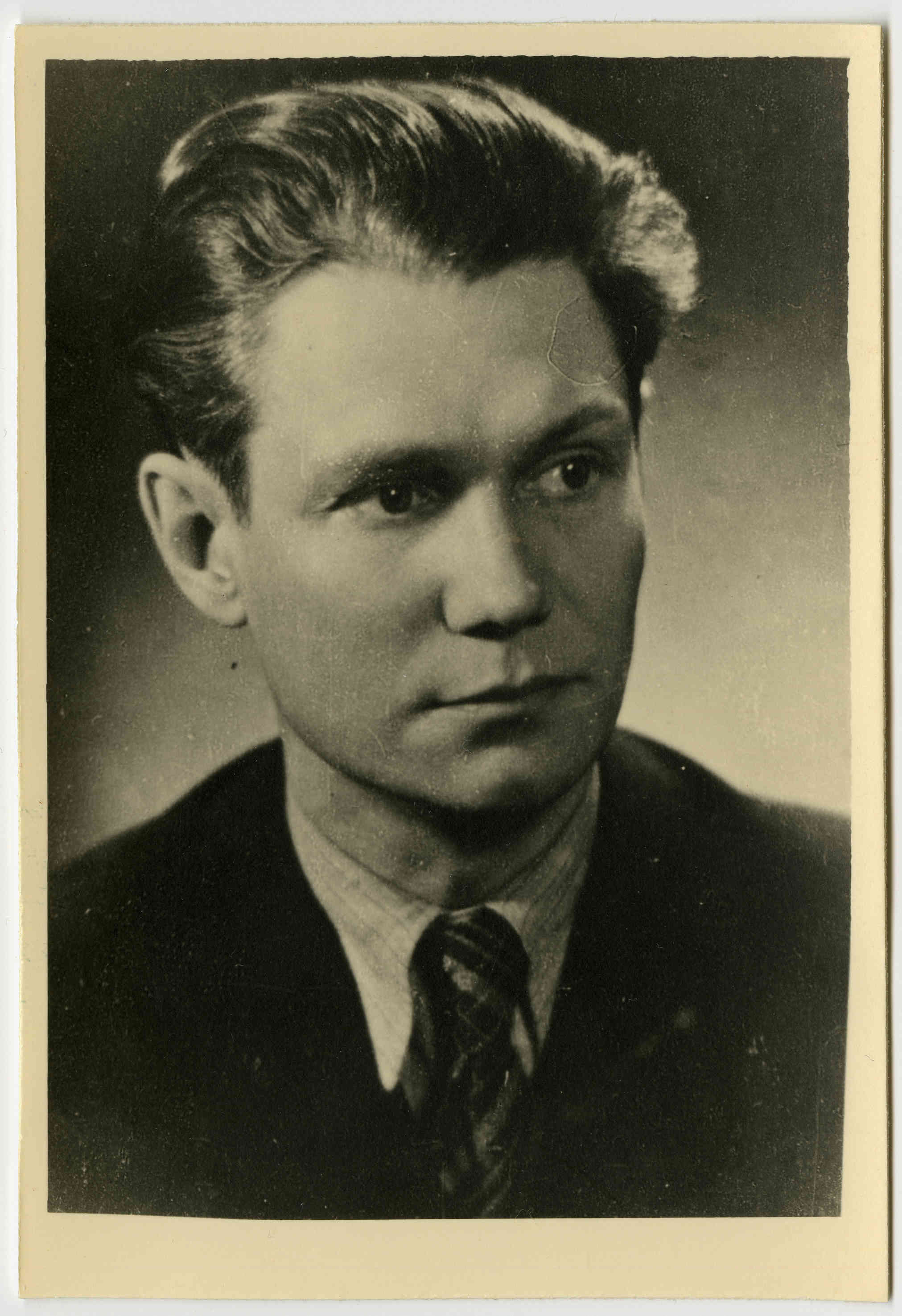
Felix Kotta
Felix Kotta (25./12. VI 1910 – 11. X 1963) was a Russian-Estonian translator, poet and children’s author, who wrote his best-known works for small children.
Kotta was born in Tartu as a cabinetmaker’s son. In 1913, the family emigrated to Siberia in search of better jobs, and his childhood was spent in Tomsk province, Yuryev settlement. In 1929, he graduated from Bolotnoye Polytechnical Secondary School. In 1931, he began studying at Leningrad, at the Institute of History and Linguistics. From 1934-1938, he studied Estonian Philology at the Leningrad Pedagogical Institute. He worked as a teacher and principal at several Siberian schools and was also an instructor at the editorial board of an Estonian language newspaper Kommunaar in Novosibirsk. In December 1944, he returned to Estonia. In 1945, he was accepted to the Estonian Writers’ Union, after which he was active as a professional writer. In 1946, he moved to Elva (small town near Tartu) based on his doctors’ recommendations. He continued his pedagogic work at Tartu State University: from 1945-1946, he taught at the department of Marxism-Leninism; and from 1962-1963, at the department of Russian language. From 1958-1960, he worked at Tartu city government. He was a member of the Communist Party of the Soviet Union since 1952. He was a passionate hunter and fisherman. He died in Tartu and is buried at Raadi cemetery.
He started writing and publishing poetry as a student. His first poems were published in Siberia in 1926, in an Estonian newspaper. He became more devoted to writing in the 1930s. His first 17 poems were published in Luuletused (‘Poems’, 1935), a shared collection by four young authors. As a loyal Soviet author, his poetry was strongly influenced by the social realism canon and communist party ideology. Besides his politically charged poetry, he later started writing more personal works as well. Among other things, he wrote poems and fables, satirical and parodying narrative poems. His poetry collection Valitud värsse (‘Chosen Verses’, 1971) is aimed at adults and features poetry from other collections, periodicals and surviving manuscripts. He has experimented with drama as well.
When he was living in Estonia, he published five poetry collections for adults and eight children’s books. His first children’s book Räägib Mati (‘Mati Speaking’, 1949) depicts oil shale mining in a humorous manner. Its sequel, Kaheksas sügis (‘The Eighth Autumn’, 1952) tells stories of the perfectly well-behaved Mati in an educational manner. Several of his narrative poems, such as Vaat, mis juhtus (‘Look What Happened’, 1951) and Tublid loomad (‘Good Animals’, 1952) are free of Soviet influences and have become classics of Estonian children’s poetry and are considered one of the best children’s books of the century. His children’s poetry is characterized by warm-heartedness and a deep inventive and humorous understanding of the lives of animals and birds. His narrative poems with a tense plot are usually admonitory and educational, the verses are rhythmic in form, coherent and simple, and accurately depictive of a child’s thoughts and expressions.
Kotta has also translated the poetry of A. Pushkin and V. Mayakovsky into Estonian, including children’s poetry.
A. O. (Translated by A. S.)
Books in Estonian
Poems for children
Räägib Mati. Tallinn: Ilukirjandus ja Kunst, 1949, 32 lk. [2. trükk: 1951.]
Vaat mis juhtus. Tallinn: Eesti Riiklik Kirjastus, 1951, 13 lk. [Järgnevad trükid: 1953, 1962, 1970, 1971, 1976, 1981, 2015.]
Kaheksas sügis. Tallinn: Eesti Riiklik Kirjastus, 1952, 48 lk.
Tublid loomad. Tallinn: Eesti Riiklik Kirjastus, 1952, 24 lk. [Järgnevad trükid: 1956, 1971, 1993, 1998, 2006, 2015.]
Mänguasjad. Tallinn: Eesti Riiklik Kirjastus, 1953, 16 lk.
Lumest maja. Tallinn: Eesti Riiklik Kirjastus, 1955, 17 lk.
Metsapere laulikud. Tallinn: Eesti Riiklik Kirjastus, 1955, 21 lk. [Järgnevad trükid: 1971, 2008.]
Hiirejaht. Tallinn: Eesti Riiklik Kirjastus, 1963, 16 lk. [Järgnevad trükid: 1971, 2007.]
Poems for grown-ups
F.Kotta, L.Saarts, H.Angervaks, P.Alnovo, Luuletused. Moskva, Leningrad: Välismaatööliste Kirjastusühisus NSVL, 1935, 159 lk.
Ründ. Tallinn: Ilukirjandus ja Kunst, 1948, 91 lk.
Kindlal sammul. Tallinn: Eesti Riiklik Kirjastus, 1950, 114 lk.
Vares, vaga linnukene. Tallinn: Eesti Riiklik Kirjastus, 1956, 100 lk.
Näojooned. Tallinn: Eesti Riiklik Kirjastus, 1958, 110 lk.
Päikesepaiste. Tallinn: Eesti Riiklik Kirjastus, 1960, 115 lk.
Valitud värsse. Tallinn: Eesti Raamat, 1971, 175 lk.



